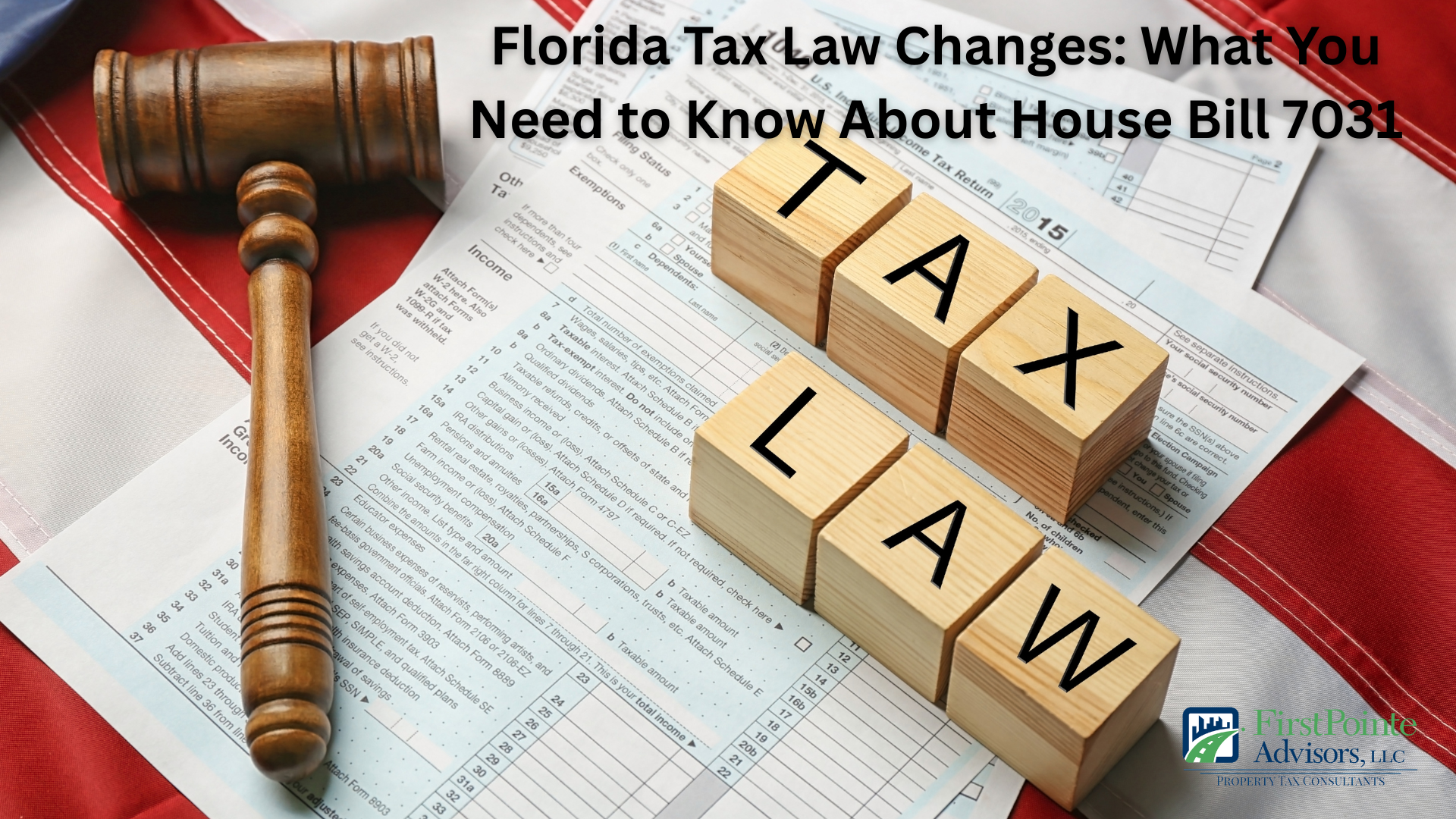News
Florida Tax Law Changes: What You Need to Know About House Bill 7031

Florida just passed one of the most sweeping tax reforms in decades, and if you’re in real estate or affordable housing, you need to hear this.
The Removal of Business Rent Tax (Finally)
Let’s start with the biggest headline. The business rent tax is officially repealed. Beginning on October 1, 2025, Florida will no longer charge sales tax on commercial real property leases. That means no more 2% state tax, no more county surtaxes, and one less line item eating into your bottom line. For tenants, this is a real reduction in total occupancy cost. A $50,000 annual lease, that’s at least $1,000 in savings, and often more in places with local surtaxes. For big box tenants or corporate users, you’re looking at tens of thousands of dollars in tax savings each year. And for landlords and brokers, this change is a win for simplicity. You no longer have to calculate and apply sales tax to rent, file and remit monthly returns, field questions from tenants over tax-on-tax lease escalations. It makes your property cleaner to underwrite, easier to bill, and more attractive to out-of-state tenants. That gives our real estate market a serious competitive edge.
Changes in the Florida Property Tax Appeal Process
The next major set of updates took place in the property tax appeals and value adjustment board process. Taxpayers also gain new protections when contesting property tax assessments in the state of Florida. Starting January 1, 2026, owners and their agents will be able to attend value adjustment board hearings remotely, by phone or video. While many jurisdictions previously allowed for this and even encouraged it, there were still many jurisdictions that required in-person hearings. In jurisdictions with populations greater than 75,000, remote hearing capabilities and approval to attend remotely is now part of the law.
An additional administrative change occurred in the statute governing the exchange of evidence between the property appraiser’s office and the taxpayers and their representatives. Historically, taxpayers and their representatives were required to submit evidence to the property appraiser’s office at least 15 days prior to a scheduled value adjustment board hearing, while the property appraiser was required to reciprocate with their evidence only 7 days prior to the hearing. With the changes laid out in HB 7031, property appraisers must now provide their evidence at least 15 days prior to the VAB hearing as well, giving the taxpayers more time to prepare. This levels the playing field.
Another administrative change impacts the cost of filing an appeal with the value adjustment board. The VAB in each county may now vote to raise the VAB filing fee to $50 per parcel, when it was previously $15 per parcel, so plan accordingly. Additionally, if the tax roll in the jurisdiction in which you have filed an appeal is extended and later recertified, there is now an ability to get an extra 30 days to file a lawsuit should you need to pursue your appeal to the next level of circuit court. These changes create a more balanced and accessible appeal process, especially for larger portfolios and institutional owners.
Affordable Housing Enhancements
Now let’s talk about affordable housing. HB 7031 introduces major new property tax exemptions designed to accelerate the development of workforce and low-income housing. Many of these changes are additions to the Live Local Act and are aimed at expanding and cleaning up some of the prior language of the Act. If your project is on land leased from a public entity for 30 years or more and provides affordable units, it can now qualify for a full ad valorem tax exemption. The same applies for land leased from non-profits for 99 years, and now even successor owners can keep the tax exemption after a sale. That’s a game changer for underwriting, debt coverage, and long-term affordability. If your project involves 4% LIHTC housing bonds or partnerships with housing authorities, this law just made the math work better.
In summary, HB 7031 helps to reshape the landscape for real estate in Florida. If you’re leasing commercial space, property owner, filing property tax appeals, or building affordable housing, these changes matter, and they can impact your bottom line. At FirstPointe Advisors, we’re focused on assisting our clients in mitigating their real estate tax burden and ensuring that they are paying no more than their fair share of property taxes. If you’re a commercial property owner in the state of Florida and need assistance or would like to have a conversation, please do not hesitate to reach out.
Let’s make sure your properties are in the best position to ensure you can meet your financial goals.
Contact us for today for help on your property tax needs!

954.906.8066
6301 NW 5th Way
Suite 2800
Fort Lauderdale,
FL 33309


